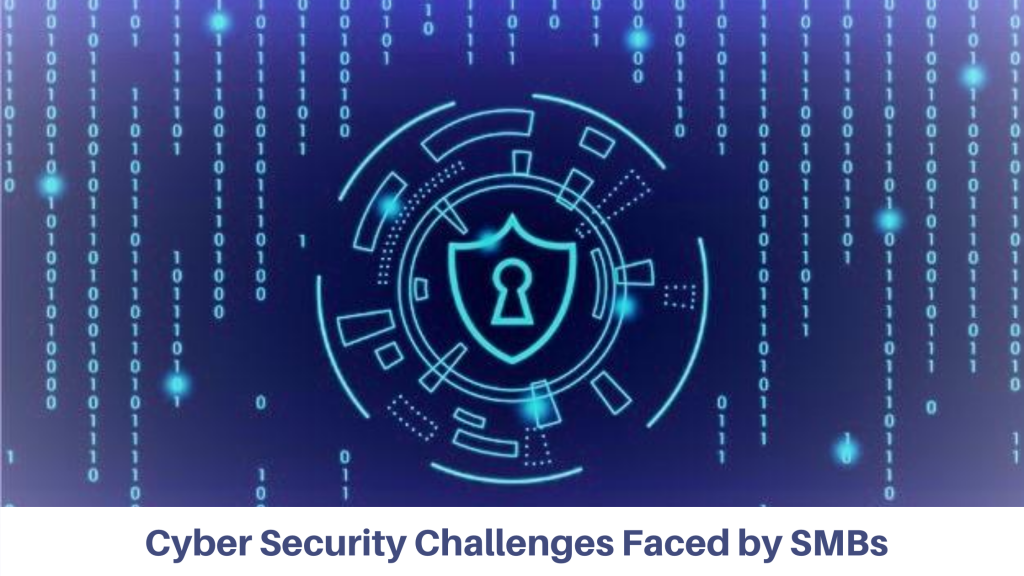
The ongoing digital transformation of companies around the world has attracted one thing in common – CYBER SECURITY. It is imperative on the part of Small & Medium Businesses (SMBs) to devise strategies to combat the so-called deadly Cyber Threats that have the capacity to throw many stakeholders out of business.
Undoubtedly, malicious Malware, Ransomware, Phishing attacks, etc. are a few terminologies that should be taken cognizance of . Cyber Security measures duly adopted, in a timely manner, are the need of the hour to stay safe and sound from the business perspective.
Cyber Attack & SMBs
As an owner of a small start-up or as a founding partner of some medium enterprises, the one significant thing that can put you in a vulnerable state is the CYBER SECURITY. In fact, SMBs are the ones to have been a favorite target of cyber fraud because of the lack of sophisticated protections in place.
If you have not incorporated a multi-layered approach to data security, you are at a higher risk. According to the Verizon Data Breach Investigations Report – 2019, half of the cyber victims have been Small Businesses.
Remote Work and the Related Risks
As you see, the work scenario has drastically shifted from a usual physical office to a work-from-home model. Your workforce has completely undergone remote! Virtual meetings, virtual collaborations, and virtual conferences have now become the primary modes of communication.
So, have you really done the groundwork? Have you identified the gaps in your remote infrastructure? If ‘Yes’, then well, if ‘No’, then you are at risk. You got to fix the gaps right away else the repercussion might harm your business more than you could imagine.
Read More:
Like death and taxes, there are only two safe predictions about cybersecurity in 2022:
The Challenges Before You
- Phishing & Spear Phishing Threats
These are a major form of Cyber attack. Both are designed to embroil you into performing specific actions like clicking malicious links, email, or attachment. Doing this, you may end up downloading malware on to your device, or you are redirected to a fraudulent website where you are asked to give your personal data such as name, address, phone number, social security number that could be misused by hackers.
Phishing emails are those emails sent to a large, random number of recipients. It means, not only you are the recipient of this email but many people like you. Whatever, if any of you click it, malware enters your system and you know the consequences!
Spear Phishing is an individual target, just like you! Only you are the recipient here. You may get an email from someone familiar to you, your colleague, your friend, family members, but it is a fake address. You trust, open it and LO, you have allowed a dangerous Ransomware to spread across your company’s network eventually stealing and locking your data. Unless you pay a ransom, you cannot unlock or restore access.
- Its’ The Humans, Not The Machines
Without any malicious intent, your employees may mistakenly end up with some kind of data breach, as they have privileged access to your company’s data. This leads to cyber attacks. Yes, it’s the humans and not the machines, who pose the biggest cyber security threat o your business.
- IoT & BYOD system
You provide a Wi-Fi enabled coffee machines, people wearing smart watches and this makes you vulnerable in terms of laxity wherein cyber criminals can enter your main network. You have a common network for all! Bring-Your-Own-Device (BYOD) system can lead to data theft.
Sharing company’s data using unsecure mobile devices or laptop is risky because they may contain malicious applications which can bypass security and access your company’s network.
- SQL Injection
Does your web application use an SQL database like Oracle, MySQL, SQL servers, or any other? If you are vulnerable, attackers can use SQL injection to attack your webpage/application and retrieve the content of your SQL database and execute their own malicious SQL statements there by adding, modifying, deleting records.
- Malware threat
Malware is just any malicious software that has the ability to destroy your business by posing threat to data security. Ransomware, Adware, Spyware, are a few names you should be aware of.
- Adopting Cloud -Based Infrastructures
You have a choice between on-premises & Cloud-based solutions viz., software, storage, server, security, ERPs and backups. Cloud may help you access high-end technologies and other resources without paying the premium prices.
However, you rely on the servers which are thousands of miles away from your business set up. What would happen if internet crashes? Service disruptions are there and your data may not be available 24*7.
Also, you are trusting an outsider with your private data. Unless you bank on high players in this industry who have strict security protocols, you may end up losing your crucial data to cyber criminals.
How to Tackle Cyber Threats
If you think you can protect your business from cyber threat by just installing a single software, you are wrong. The three major security layers from macro perspective are the Policy, Technology and Training.
- Your policy layer may read as ‘Be careful to open phishing emails’. Allow only specific URLs in your Whitelist.
- The policy layer is supported by technology layer like configuring Firewall entry, exit filtering rules. Also, sub-layer like reverse proxy, allowing specific ports, etc. should be properly undertaken.
- Adopt the appropriate Anti-Virus tools and keep upgrading frequently.
- Database access must be restricted as per role basis.
- Application development must be cyber compliant.
- Educate your employees by giving them training in the basic Cyber Securities knowhow- the
Cyber security should be taken as a shared responsibility. It is now a mandatory requirement to sustain your business. Cyber criminals are constantly trying to steal your data-sensitive details like the IP address, Usernames, passwords, credit card numbers, and telephone numbers, which are on hackers’ wish lists. Be alert, be safe!



